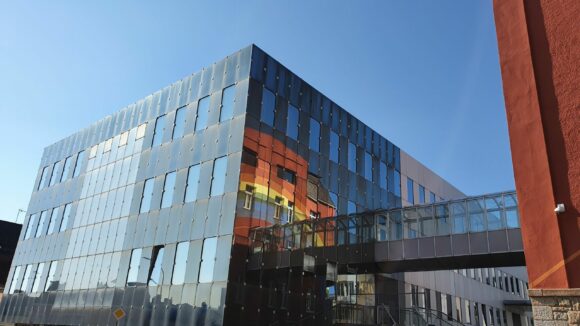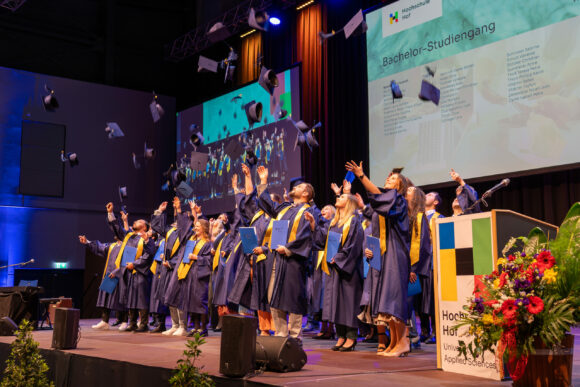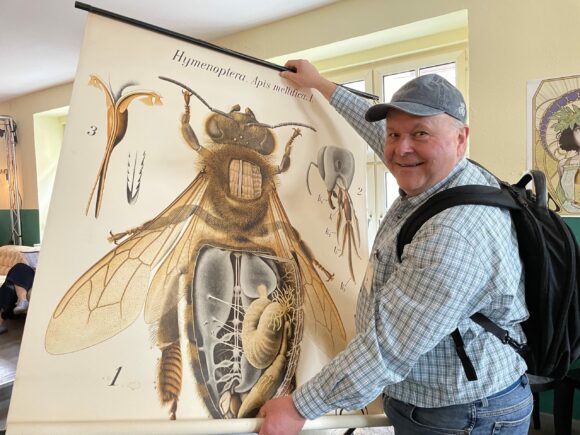Recently, the second internal science colloquium at Hof University of Applied Sciences took place as a hybrid event. The goal of the meeting between the approximately 70 participating scientists was to network better and to promote scientific exchange among each other. Thus, not only the interdisciplinary cohesion should be strengthened, but also cross-institutional discussions should take place
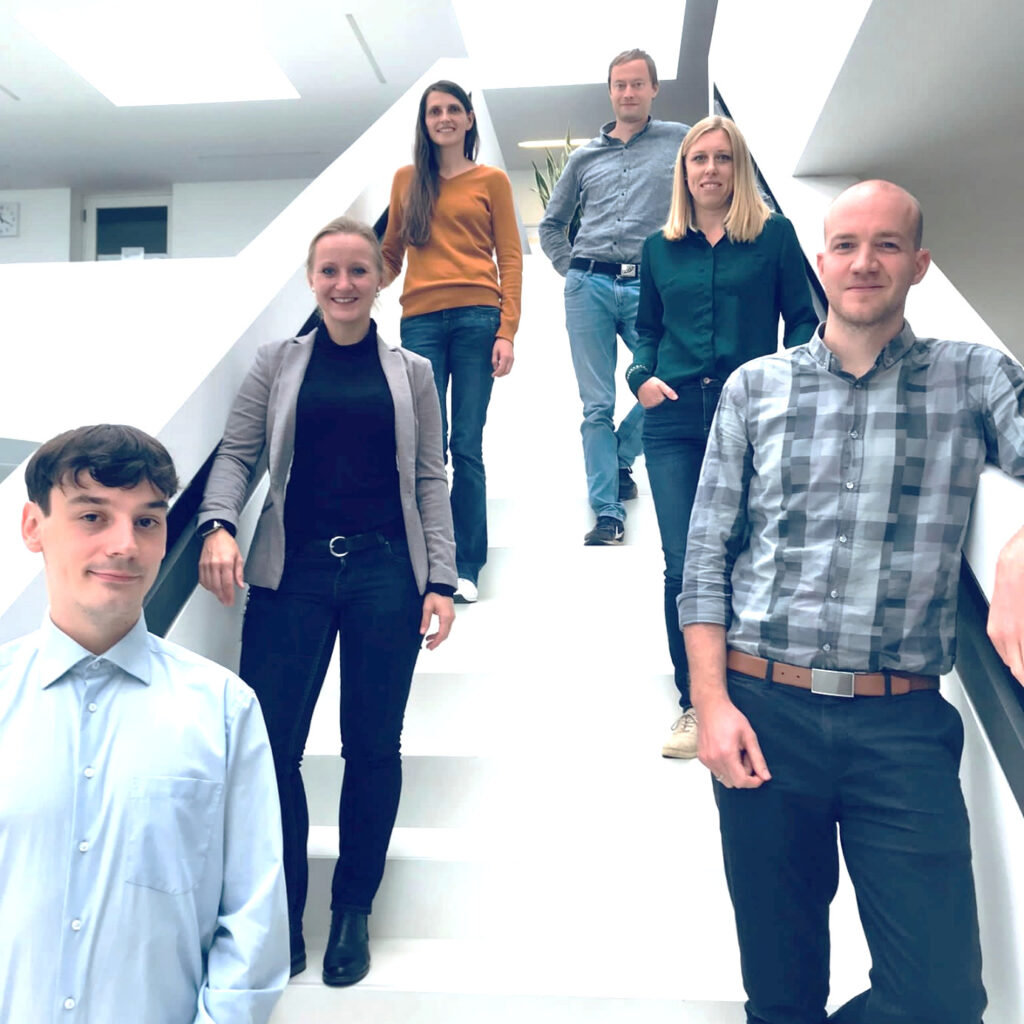
A total of 49 posters, i.e. short descriptions of the respective projects, were submitted and via a voting of a good 70 responses, the presenters were selected to present their projects from the five institutes of the university. In addition to the four research institutes, the Competence Center Digital Administration, which was opened six months ago, also participated for the first time this year.
The following four projects were presented:
- “Skylight” by Stephan Paulack: This is about the coatings on e.g. roof windows, where shading is provided in summer and you can still look through (Institute of Materials Science).
- “Dammit” by Johannes Wirth: Speech recognition has been significantly improved in recent years through the use of deep neural networks. This project aims to capture more secure speech data so that dictation functions on e.g. cell phones are improved (Institute of Information Systems).
- “Energy self-sufficient institute for water and energy management” by Oliver Stark: An entire building as a research object – this is how the new institute for water and energy management on the campus of Hof University of Applied Sciences is planned. Via a PV system, a block heating system, its own power grid and much more, the building is aiming for energy self-sufficiency.
- “Building a Digital Twin of a German Public Authority” by Prof. Dr. Heike Markus: Only a small percentage of the processes in German public authorities have been digitally recorded so far; for example, it is still not possible to register your car digitally. The goal of the Competence Center Digital Administration is to create direct benefits for public authorities and citizens by digitally recording processes. These processes are tested in advance in the digital twin.
- Another project from the Institute for Biopolymers, presented by Michaela Zagler, may unfortunately not yet be published due to non-disclosure agreements.
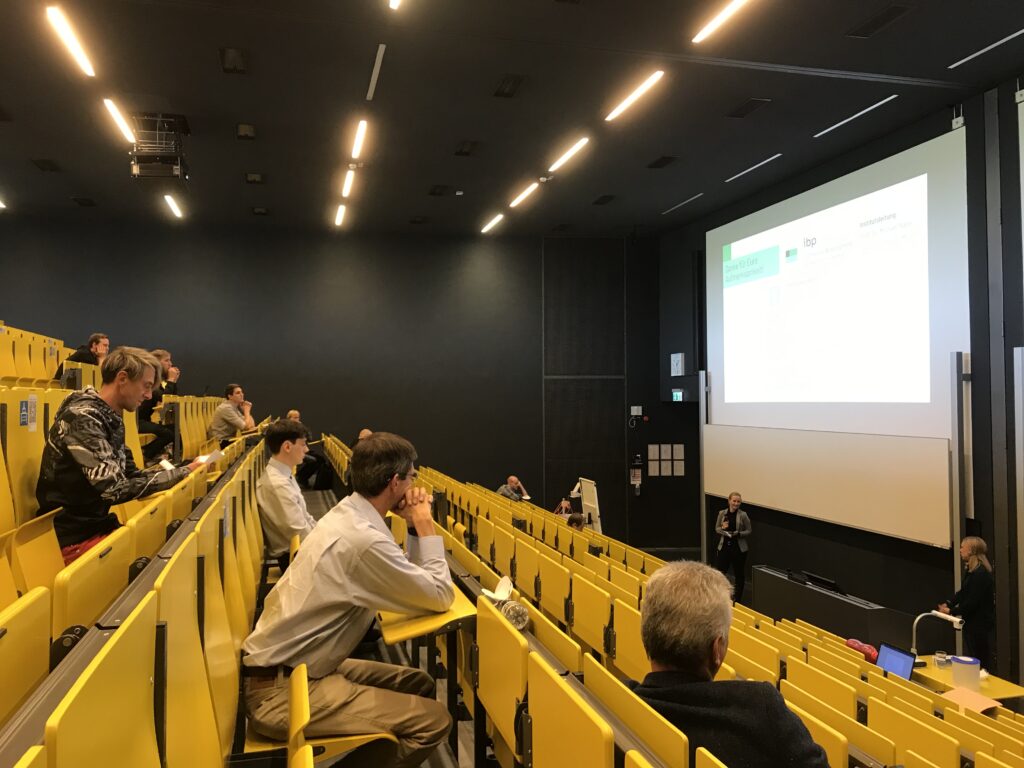
During the colloquium, under the competent moderation of Jessica Wittmann (ifm), who had organized the colloquium, there was a lot of discussion, both by the scientists who were actually present and those who were connected online
I am glad that everything went well and good technical discussions arose in the presented projects, which showed the interest in the respective project.”
Jessica Wittmann, organizer
Unfortunately, the planned subsequent barbecue could not take place this year – hopefully next year, when the iisys will take over the organization.




